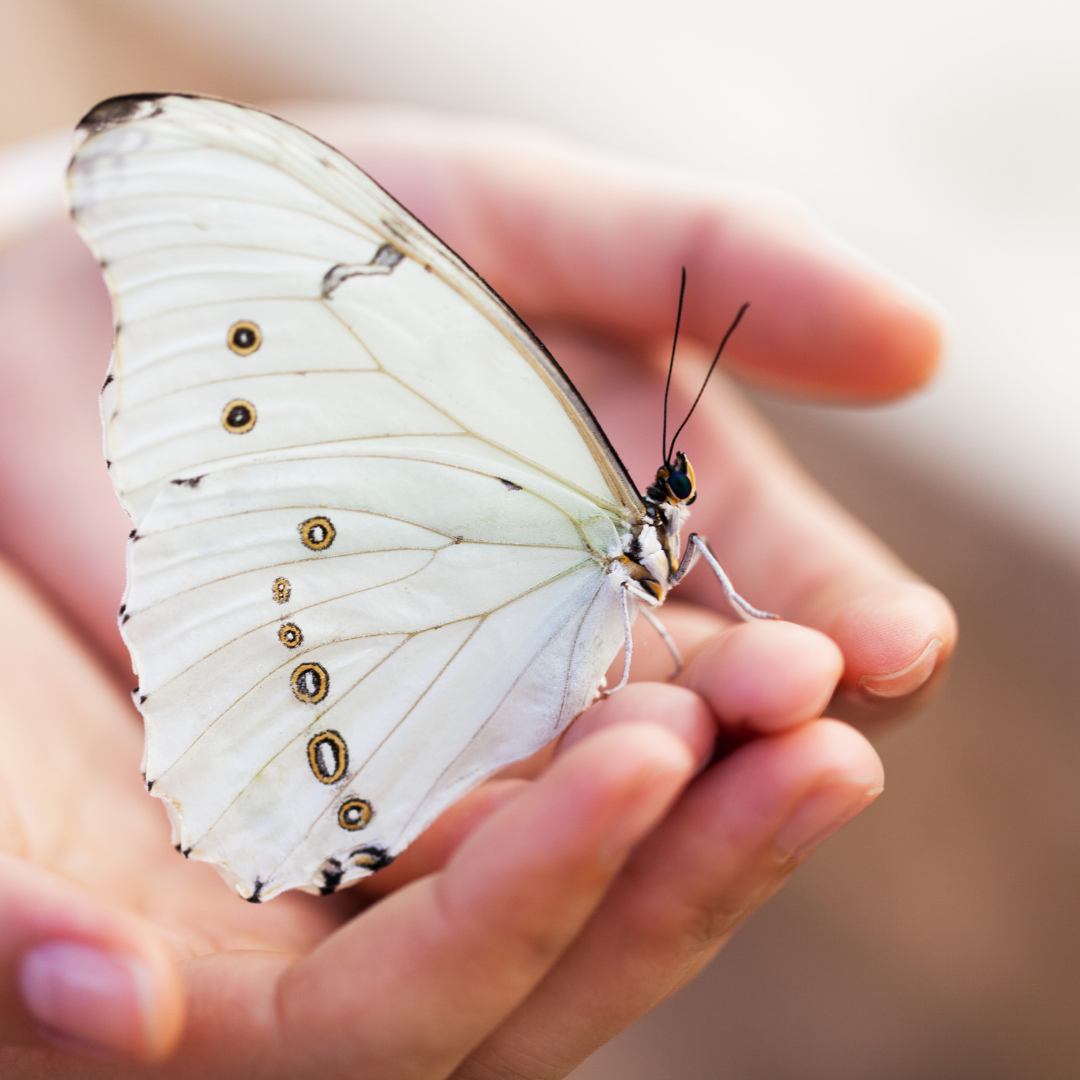
Flávia Ghelardi explores the two types of freedom and how the Church teaches us to protect the freedom God has given us.
Flávia Ghelardi writes from Brazil in English and Portuguese. Vá para a versão em português.
Freedom is one of the fundamental rights of every human being. But it is also a very fragile right; we can lose it if we do not take good care of it. We can speak of two types of freedom: inner freedom, to act according to one's own reason and will, and outer freedom, which is regulated by the society in which each person lives, which can limit or even extinguish the individual's right to act. These two types of freedom are constantly under threat.
The Catechism of the Catholic Church defines freedom this way:
Freedom is the power, rooted in reason and will, to act or not to act, to do this or that, and so to perform deliberate actions on one's own responsibility. By free will one shapes one's own life. Human freedom is a force for growth and maturity in truth and goodness; it attains its perfection when directed toward God, our beatitude. (1731)
Therefore, to be able to exercise well this power to act or not to act, we need to use our intelligence to discern what is good and strengthen our will to be able to act according to this discernment.
The more one does what is good, the freer one becomes. There is no true freedom except in the service of what is good and just. (CCC 1733)
Nobody can take away our freedom
This inner freedom, to act according to our own conscience, no one can take away from us. We only lose this freedom through our own fault, when we do not discern what is good, or when, even knowing what good is, our will does not have the strength to act according to what our intelligence proposes. Giving in to our impulses, we become slaves to them. And instead of acting, we only react.
Father Joseph Kentenich, founder of the Schoenstatt Movement, although imprisoned in a concentration camp during World War II, kept his inner freedom intact. Although physically limited by prison, he lived with his heart and mind in Heaven. He accepted that circumstance as divine permission and used it to help whoever he could to survive that real hell.

There is no total freedom
Nobody is totally free, because there are several limitations imposed by nature itself. We are not free to choose where we are born, to feel hungry or cold, to be taller or shorter. There are countless circumstances that we do not control and that interfere in our life. But if we try to live the virtues, in time we will achieve a high degree of inner freedom, and these external circumstances will interfere very little in the way we act.
It is said that every day a man passed by a magazine stand and greeted the newsagent. In response, he always received some rudeness. One day his friend asked him why he kept being nice and greeting the newsagent if the answer was always negative. He answered that he was free to do what he thought was right and that it was not the other person's attitude that would affect the way he acted.
In this way, in order not to lose our inner freedom, we need to constantly fight to acquire virtues, such as patience, temperance, fortitude, prudence, among others. Each of us needs to analyze where our weakest point is, to start this fight that will last a lifetime.
Outer freedom is not in our hands
As for external freedom, we can do very little to remain free. All it takes is a simple decree from a civil authority and we can no longer leave the house or even express our opinion publicly. Of course we should always fight for freedom with the means we have, but in the end we live in a society and in order to have security we give up this freedom and give it to the government.
This should not distress us, for it is no use having outward freedom if inwardly we are slaves to our desires and passions. Let us do all we can to remain outwardly free, but let us fight bravely against our imperfections to possess as much inner freedom as possible.
Freedom makes man responsible for his acts to the extent that they are voluntary. Progress in virtue, knowledge of the good, and ascesis enhance the mastery of the will over its acts. (CCC 1734)

Será que realmente somos livres?
A liberdade é um dos direitos fundamentais de todo ser humano. Mas ela também é um direito muito frágil, podemos perdê-la se não cuidarmos bem. Podemos falar em dois tipos de liberdade: aquela interior, de agir de acordo com a própria razão e vontade e a exterior, que é regulada pela sociedade em que cada pessoa vive, que pode limitar ou até extinguir o direito de ação do indivíduo. Esses dois tipos de liberdade vivem constantemente ameaçados.
O Catecismo da Igreja Católica, no parágrafo 1731, assim define a liberdade: “A liberdade é o poder, baseado na razão e na vontade, de agir ou não agir, de fazer isto ou aquilo, portanto de praticar atos deliberados. Pelo livre-arbítrio, cada qual dispõe sobre si mesmo. A liberdade é, no homem, uma força de crescimento e amadurecimento na verdade e na bondade. A liberdade alcança sua perfeição quando está ordenada para Deus, nossa bem-aventurança.”
Portanto, para conseguirmos exercer bem esse poder de agir ou não agir, precisamos utilizar nossa inteligência para discernimos o que é o bem e fortalecermos nossa vontade para conseguir agir de acordo com esse discernimento. “Quanto mais pratica o bem, mais a pessoa se torna livre. Não há verdadeira liberdade a não ser a serviço do bem e da justiça.” (CIC 1733)
Ninguém pode tirar nossa liberdade
Essa liberdade interior, de agir de acordo com a própria consciência, ninguém pode nos tirar. Nós só perdemos essa liberdade por própria culpa, quando não discernimos o que é o bem ou quando, mesmo sabendo o que é o bem, nossa vontade não tem força para agir de acordo com o que a inteligência propõe. Cedendo aos nossos impulsos, nos tornamos escravos deles. E ao invés de agir, apenas reagimos.
O Pe. José Kentenich, fundador do Movimento Apostólico de Schoenstatt, mesmo preso num campo de concentração durante a 2ª Guerra, manteve sua liberdade interior intacta. Apesar de fisicamente limitado pela prisão, ele vivia com o coração e a mente no Céu. Aceitou aquela circunstância como permissão divina e a utilizou para ajudar quem ele pode a sobreviver àquele verdadeiro inferno.
Não existe liberdade total
Ninguém é totalmente livre, pois existem várias limitações impostas pela própria natureza. Não somos livres para escolher onde nascemos, para sentir fome ou frio, para ser mais alto ou baixo. São inúmeras circunstâncias que não controlamos e que interferem em nossa vida. Porém, se buscarmos viver as virtudes, com o tempo conseguiremos um alto grau de liberdade interior e estas circunstâncias externas interferirão muito pouco no modo como agimos.
Conta-se que todos os dias um homem passava por uma banca de revista e cumprimentava o jornaleiro. Como resposta, sempre recebia alguma grosseria. Um dia seu amigo perguntou por que ele continuava sendo gentil e cumprimentando o jornaleiro se a resposta sempre era negativa. Ele respondeu que era livre para fazer o que achava certo e não era a atitude do outro que iria afetar seu modo de agir.
Desta forma para não perdermos nossa liberdade interior, precisamos lutar constantemente para adquirir as virtudes, como a paciência, temperança, fortaleza, prudência, entre outras. Cada um precisa analisar onde está seu ponto mais fraco, para iniciar essa luta que vai durar a vida toda.
A liberdade exterior não está em nossas mãos
Quanto a liberdade exterior, muito pouco podemos fazer para permanecermos livres. Basta um simples decreto de uma autoridade civil e não podemos mais sair de casa ou até expressarmos nossa opinião publicamente. Claro que devemos sempre lutar pela liberdade com os meios que possuímos, mas no fundo, vivemos em sociedade e, para termos segurança, abrimos mão dessa liberdade e a damos ao governo.
Isso não deve nos afligir, pois não adianta ter liberdade exterior, se interiormente somos escravos de nossos desejos e paixões. Façamos tudo o que está em nosso alcance para permanecermos livres exteriormente, mas lutemos bravamente contra nossas imperfeições para possuirmos o máximo de liberdade interior possível.
A liberdade torna o homem responsável por seus atos, na medida em que forem voluntários. O progresso na virtude, o conhecimento do bem e a ascese aumentam o domínio da vontade sobre seus atos.” (CIC 1734)
Copyright 2021 Flávia Ghelardi
Images: Canva Pro
About the Author

Flávia Ghelardi
Flávia Ghelardi is the mom of four, a former lawyer already "promoted" to full time mom. Flávia published her first book FORTALECENDO SUA FAMÍLIA and is a member of Schoenstatt´s Apostolic Movement. Flávia loves to speak about motherhood and the important role of women, as desired by God, for our society. She blogs at www.fortalecendosuafamilia.blogspot.com.


.png?width=1806&height=731&name=CatholicMom_hcfm_logo1_pos_871c_2728c%20(002).png)
Comments